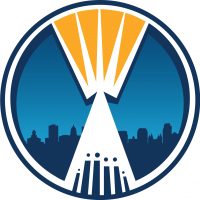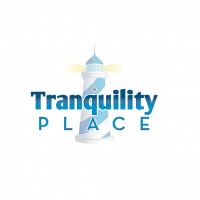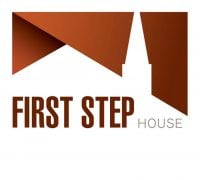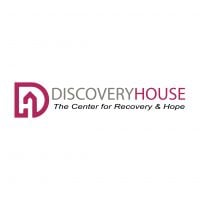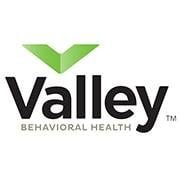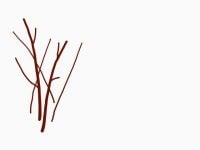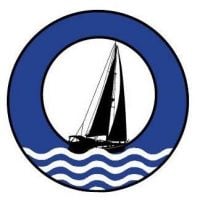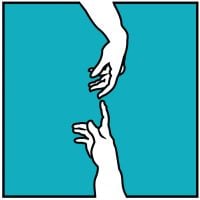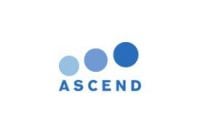Indian Walk in Center
Drug Rehab Center in Salt Lake City, Utah
Indian Walk in Center is an Addiction Treatment Facility founded in 1974 located in Salt Lake City, UT that specializes in treating individuals suffering from opioid addiction, substance abuse, dual diagnosis, and drug addiction and offers various levels of care tailored to meet each client's individual needs.
About This Salt Lake City, UT Facility
Indian Walk in Center is an addiction treatment facility located in Salt Lake City, Utah. Established in 1974, this center offers a variety of services to individuals suffering from opioid addiction, substance abuse, dual diagnosis issues, and drug addiction. They focus on providing personalized care and support to help individuals overcome their dependencies and achieve long-lasting recovery. The Indian Walk in Center is committed to empowering patients through various levels of care and a comprehensive range of treatment approaches.
At the Indian Walk in Center in Salt Lake City, individuals struggling with addiction and substance abuse can find the help they need to regain control over their lives. This facility offers a diverse array of services that cater to the unique needs of each patient. Their treatment methods include aftercare support, drug rehab programs, dual-diagnosis interventions for co-occurring mental health disorders and addiction, intensive outpatient programs, and outpatient treatment options. Through a combination of individual therapy sessions, group counseling, medical support, psychoeducation, and holistic approaches, such as mindfulness practices or art therapy, Indian Walk in Center aims to provide effective and comprehensive care for those seeking recovery from various forms of addiction and substance abuse.
Genders
Ages
Modality
Additional
Conditions and Issues Treated
Substance abuse is the excessive use of any type of drug. This includes alcohol, medications and illegal drugs. Substance abuse is treated with a combination of physical and mental treatments. Indian Walk in Center patients detox and follow up with therapies that target the underlying cause of the addiction.
Opioid addiction is one of Utah‘s most prominent forms of addiction. Drugs, including heroin, oxycontin, and fentanyl, are the most common. To relieve pain, or ease other ailments, they are professionally prescribed, but they are often abused because they and the feelings they give are addictive.
Addiction is treated by detoxifying the body, so the medications’ chemicals are no longer impacting the individual. Indian Walk in Center offers therapies to correct behavior and target the root of the problem are supplemented during and throughout treatment.
Levels of Care Offered
This center offers a variety of custom treatment tailored to individual recovery. Currently available are Aftercare Support, Drug Rehab, Dual-Diagnosis, Intensive Outpatient, Outpatient, with additional therapies available as listed below.
Intensive Outpatient Programs (IOPs) are treatment programs suitable for people who wish to stay at home while undergoing treatment. IOPs like Indian Walk in Center make it possible for individuals to carry on with their responsibilities at work or school, in or near Salt Lake City, UT. It’s easy to find an IOP center that offers individualized treatment protocols.
In outpatient programs at Indian Walk in Center, the Salt Lake City resident can live with their family while continuing with their job or studies. Treatment includes educating the patient on drug abuse, medications, and counseling sessions at the individual or group level.
Aftercare support refers to the follow-up care provided after the initial rehab program. The quality of aftercare support plays an important role in preventing relapses and sustains recovery. Aftercare support at Indian Walk in Center is personalized according to the needs of the patient in Utah.
Indian Walk in Center‘s Therapies & Programs
Substance abuse does a number on an individual’s relationship with other people, particularly in marriage. Spousal relationships bear the brunt of alcohol and drug dependence. Therefore, it becomes critical to submit the relationship to couples therapy to prevent straining it further. Most programs only zero in on the individual with substance addiction without factoring in the importance of the other half’s emotional support.
However, some facilities, like Indian Walk in Center in Salt Lake City, Utah, offer couples therapy options to manage intimate partnerships amid the recovery process. Other couples-focused treatment plans can provide the patient and their partner tools to get things back to normal, support each other, and the patient’s sobriety.Group Therapy is a type of counseling that occurs between a bunch of strangers. These groups are suitable for patients who are not confined in a treatment facility, but group sessions are also common in inpatient rehab programs. Group therapy is led by a trained individual at Indian Walk in Center in Salt Lake City, UT and consists of members from different stages of recovery.
The goal of group therapy sessions is to foster hope and a sense of belonging, share information, and learn coping mechanisms. It also helps to have people who can relate to what you’re going through. Good behaviors can also be contagious, and participants can learn from one another.
Unresolved trauma is often a key reason why many patients resorted to substance abuse. Trauma could be physical abuse, sexual abuse, war, natural disasters, divorce, accident, loss of a loved one, etc. If trauma is the primary cause of substance abuse, then both issues must be addressed.
Cognitive Behavioral Therapy (CBT) is an approach and method in psychotherapy. Indian Walk in Center asks people to investigate how their thoughts, including habitual, negative, and inaccurate ways of thinking affect behaviors. CBT is based on the idea that rigid, inflexible ways of thinking cause people to have a limited ability to cope with stress
The 12-step program is a part of substance abuse treatment offered at Indian Walk in Center. It was initially developed by the founders of Alcoholics anonymous. The program provides the benefit of cognitive restructuring. It refers to the process of change in the negative thoughts that leads to long-term benefits.
Payment Options Accepted
For specific insurance or payment methods please contact us.
Additional Details
Specifics, location, and helpful extra information.
Salt Lake City, Utah 84115 Phone Number801-486-4877 x26 Meta DetailsUpdated November 25, 2023
Staff Verified
Patient Reviews
There are no reviews yet. Be the first one to write one.
Salt Lake City, Utah Addiction Information
More than 500 people in Utah die each year from the effects of drug abuse and/or addiction. Substance abuse rates in Utah have seen an upward trend for a variety of drugs. Opioids are involved in almost 70% of all drug-related deaths in the state, annually. In 2014, Utah officials created a Good Samaritan Law to protect drug users who report possible overdoses from being prosecuted themselves.
An estimated 9.1% of Salt Lake City, Utah, residents were current illicit drug users in 2014. In 2015, there were 120 drug overdose deaths in the area, which is a rate of 9.3 deaths per 100,000 persons. The most commonly abused drugs include methamphetamine, heroin, and prescription opioids. There are different rehabs in Salt Lake City to choose from, but it's important to find the one that is best for you.
Treatment in Nearby Cities
- Santa Clara, UT (266.9 mi.)
- Spanish Fork, UT (45.2 mi.)
- Midway, UT (27.2 mi.)
- Enterprise, UT (240.0 mi.)
- Clearfield, UT (26.4 mi.)
Centers near Indian Walk in Center
The facility name, logo and brand are the property and registered trademarks of Indian Walk in Center, and are being used for identification and informational purposes only. Use of these names, logos and brands shall not imply endorsement. RehabNow.org is not affiliated with or sponsored by Indian Walk in Center.
